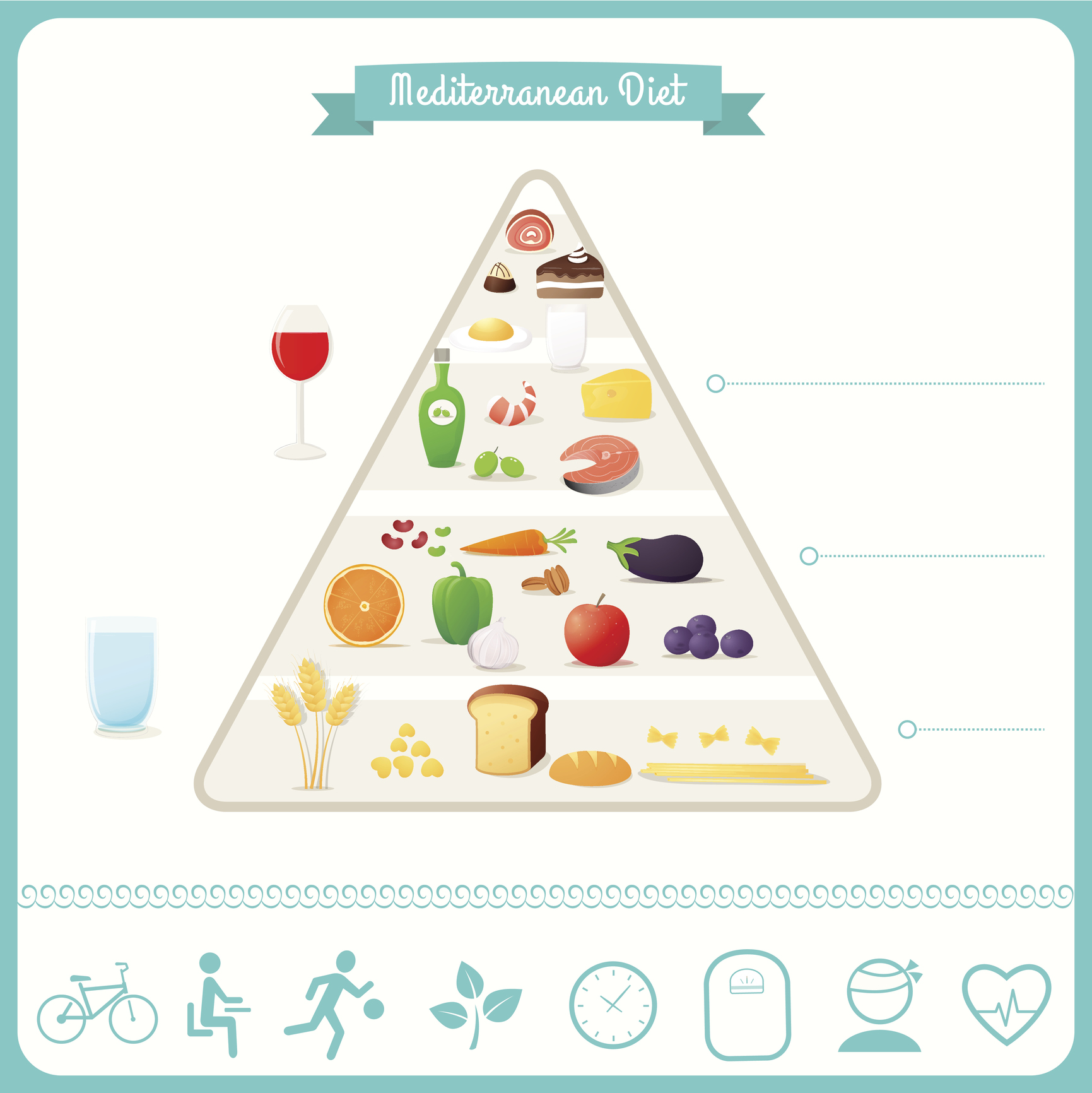Breast cancer, as with any cancer, develops for complex reasons. One of the contributing factors in breast cancer traces back to diet. As with the microbiome found in the gut, breast tissue also is affected by the foods one eats. Researchers at Wake Forest School of Medicine in North Carolina have been exploring this diet-breast cancer connection in animal model research.
In primates fed either a typical Western diet (think high-fat) or a Mediterranean diet for the equivalent of eight human years, there were big differences in long-term health. The Mediterranean diet created a distinctive bacteria profile in the breast tissue, a profile that is known to decrease breast cancer risk.
Considering all of the other health benefits of a Mediterranean diet – ranging from preventing heart disease, reducing the risk of Alzheimer’s to less diabetes and improved longevity, this research only adds to the strength of recommendations to emulate this style of eating.
The Mediterranean diet emphasizes plant-based foods, such as fruits and vegetables, whole grains, legumes, and nuts, and replaces butter with healthy fats such as olive oil and canola oil. In addition it suggests using herbs and spices instead of salt to flavor foods, limiting red meat to no more than a few times a month, eating fish and poultry at least twice a week, drinking red wine in moderation (optional), and getting plenty of exercise.
Source
Shively CA, Register TC, Appt SE, et al. Consumption of Mediterranean versus Western diet leads to distinct mammary gland microbiome populations. Cell Rep 2018;25:47-56.
Related Posts
Breast Cancer Awareness Month
October is Breast Cancer Awareness Month, a time when healthcare experts share messages about the...
Breast Cancer Treatment Options Expanding
Targeted cancer therapies aim to best match the treatment to specific characteristics of cancer...
Who Needs Exercise? Everyone: Even Cancer Patients
Let’s get moving! It’s well established that regular physical activity lessens the chance of...
Skip the Chemo?
Breast cancer treatments have made impressive strides in terms of increasing survival rates for...





